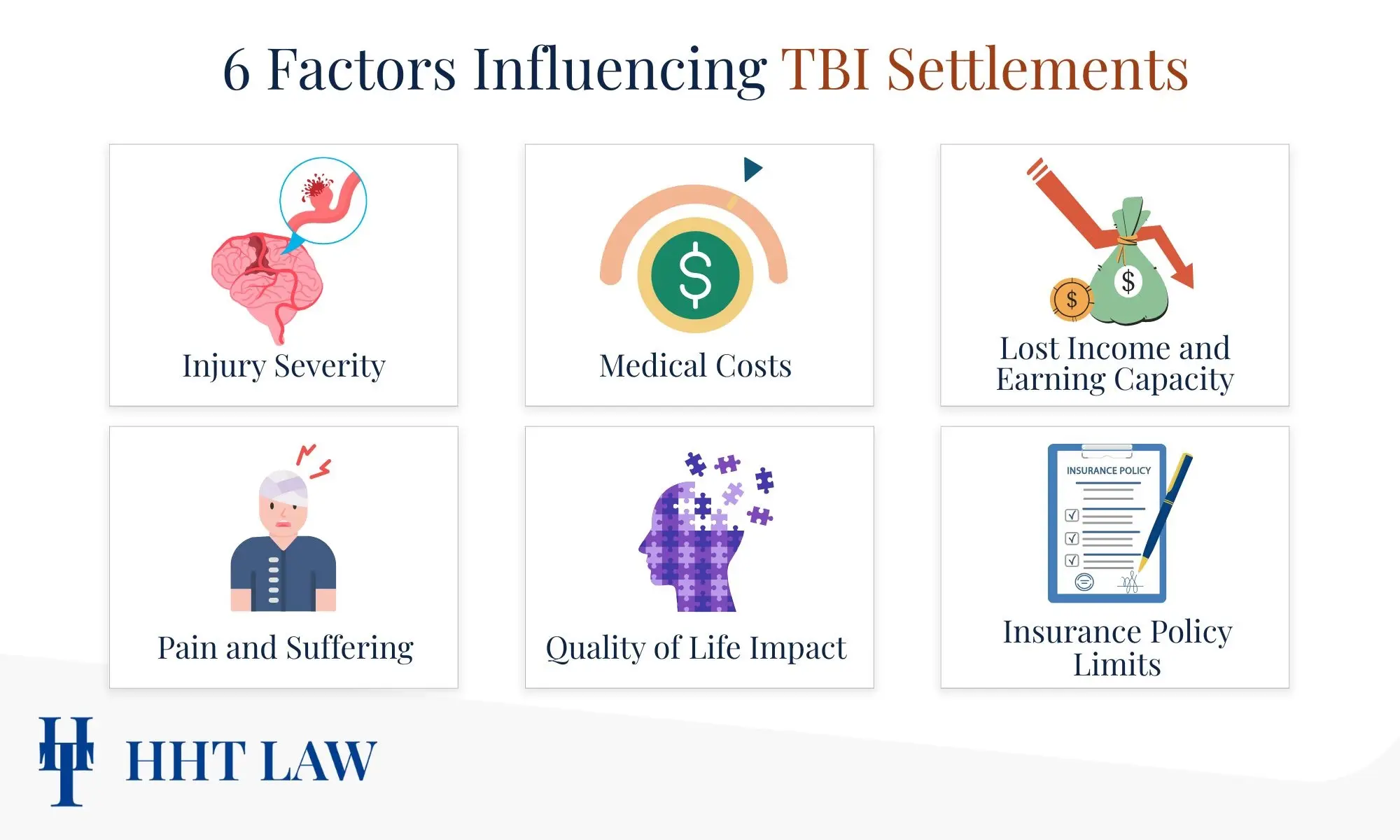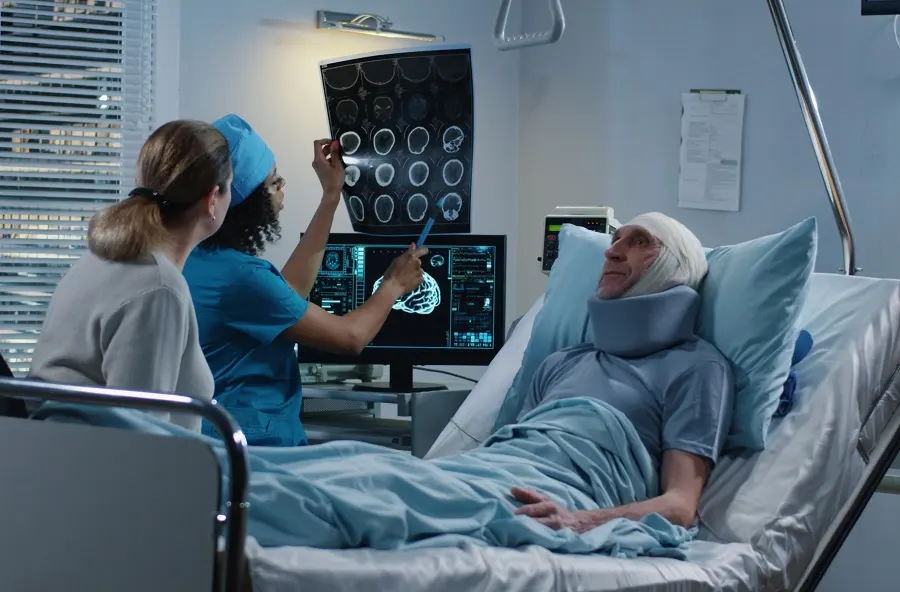Recovering from a traumatic brain injury (TBI) goes beyond physical recovery — it often brings emotional, financial, and lifestyle challenges that can persist long after the initial injury. Understanding how compensation is determined in TBI cases is essential to ensure victims receive fair settlements that accurately reflect their severe brain injuries.
If you're seeking the assistance of a skilled San Fernando Valley TBI lawyer, this guide explains how TBI settlements are calculated, the factors that influence them, and why having exceptional legal representation can impact the outcome of your case.
What Is a Traumatic Brain Injury (TBI)?

A traumatic brain injury (TBI) happens when an external force, such as a blow, jolt, or penetration, causes damage to the brain. According to the National Institutes of Health (NIH), TBIs can range from mild concussions to severe brain damage and occur due to incidents like car accidents, workplace injuries, falls, or sports.
Some symptoms appear immediately, while others may take days, weeks, or even months to surface. TBIs can affect cognitive abilities, emotional health, physical function, and overall quality of life. In severe cases, they can result in permanent disability and the need for ongoing care. Due to these significant effects, securing fair compensation for TBI victims is vital.
Factors Influencing TBI Settlement Calculations
Several factors determine the value of a TBI settlement, taking into account both economic and non-economic damages. The more severe the injury and the greater its impact on daily life, the higher the potential settlement amount.

Injury Severity
The severity of the injury is a key factor in determining compensation. Severe injuries that cause lasting impairments in memory, mobility, cognitive function, or emotional health generally lead to higher settlement amounts. Severe brain damage often results in permanent disability, which requires compensation not only for medical expenses but also for long-term care and a diminished quality of life.
Medical Costs
Medical expenses associated with TBI treatment are often substantial, particularly if the injury is severe. These costs include:
- Emergency room visits
- Surgery and hospitalization
- Rehabilitation and physical therapy
- Long-term medications and medical devices
A TBI victim may also require lifelong medical treatment, making future medical costs a critical element of a settlement. In such cases, an experienced personal injury lawyer may work with medical experts to estimate these future expenses for proper compensation.
Lost Income and Earning Capacity

TBIs can prevent individuals from working for extended periods, or in some cases, from returning to work at all. Lost wages are a significant part of the compensation, covering not just earnings lost during recovery, but also future earning capacity if the victim cannot return to their previous job or must change careers due to the injury.
Victims whose earning potential is affected by a TBI can claim compensation for future losses. The longer the recovery or the more permanent the disability, the more likely this factor will be included in the settlement.
Pain and Suffering
Pain and suffering in TBI claims refers to the physical pain, emotional distress, and mental anguish the victim experiences due to the injury. This can involve depression, anxiety, chronic pain, sleep issues, and post-traumatic stress disorder (PTSD). The mental health effects of a TBI are often underestimated, but they play a significant role in settlement calculations. Severe TBIs can also cause cognitive impairments that affect relationships, self-esteem, and overall quality of life.
Quality of Life Impact

A TBI’s impact on a person’s quality of life can be profound. Some brain injury victims may lose the ability to enjoy activities they once loved, such as playing sports, socializing, or even handling daily tasks. For example, a former athlete who can no longer participate in their favorite sport or hobby due to physical limitations from a TBI can claim compensation for the loss of enjoyment of life. The degree of lifestyle changes is an integral part of determining a settlement's overall value.
Insurance Policy Limits
The insurance policy limits of the party responsible for the injury will influence how much compensation you can receive. In some cases, damages may exceed the coverage amount, but the law sets a cap on how much can be recovered from the insurer. However, there may be other ways to recover damages, such as pursuing the negligent party’s personal assets or filing under an underinsured motorist policy.
How Are Damages Calculated in TBI Settlements?
In TBI cases, damages are divided into economic and non-economic categories. Both types of damages are crucial for understanding the full financial and personal impact of the injury.
Economic Damages
These are measurable financial losses directly resulting from the TBI, including:
- Medical expenses (past and future, including ongoing treatments and medications)
- Lost wages (both past and future lost earning potential)
- Property damage (such as from a car accident)
- Rehabilitation costs
- Assistive devices (e.g., wheelchairs or prosthetics)
Non-Economic Damages
These damages address the non-financial aspects of the TBI, such as:
- Pain and suffering
- Emotional distress
- Loss of consortium (impacting relationships with spouses or children)
- Loss of enjoyment of life
Two common methods for calculating these damages are:
- Multiplier method: This method multiplies the total economic damages by a factor (usually 1.5 to 5) based on the injury's severity.
- Per diem method: This method assigns a daily value to the victim’s pain and suffering and multiplies it by the number of days the victim is expected to experience the pain.
How to Maximize TBI Settlements
To maximize your brain injury settlement, following certain steps can strengthen your personal injury lawsuit. These actions help demonstrate the full scope of your injury and its effect on your life.
Seek Immediate Medical Attention

Prompt medical care is essential for your health and for establishing a clear record of the injury and necessary treatments. If you’ve suffered a head injury, seeing a doctor right away is important to document the injury and support your legal claim. Delays in medical care can hurt your case and suggest that your injuries aren’t as severe as claimed.
Follow Your Treatment Plan
It’s vital to follow prescribed treatments and therapies. Consistent participation in therapy shows the ongoing need for care. Gaps in treatment can suggest that you are no longer injured, which could reduce your compensation.
Document Symptoms and Lifestyle Changes
Keeping track of your symptoms and how the TBI affects your daily life can be very useful. Document specific TBI symptoms as part of your evidence-gathering process, as this information is vital for a proper assessment. Photos, videos, and statements from loved ones can provide additional proof of the injury’s impact on your life.
Preserve Evidence

Keep accident reports, witness statements, and any other evidence related to the incident. Documenting the accident scene with photos, witness statements, and physical evidence is crucial. This documentation can help support your traumatic brain injury claim and prove negligence.
Hire an Experienced Personal Injury Lawyer
Hiring an experienced TBI lawyer can greatly improve your chances of securing maximum compensation. Legal counsel from a skilled attorney with advanced knowledge of these types of cases is vital for investigating the cause of the injury, working with experts to assess damages, and handling insurance company negotiations to ensure you’re not offered an unfair settlement.
How a Traumatic Brain Injury Lawyer Can Help Secure Fair Compensation
Handling a TBI case is complex and requires advanced knowledge in both legal and medical matters. A TBI lawyer can help in the following ways:
- Investigating the incident: They will work to determine the cause of the injury and gather relevant evidence.
- Consulting experts: They may work with medical professionals, vocational experts, and economists to assess long-term care needs and future lost income.
- Negotiating with insurers: A skilled attorney can negotiate with insurance companies to ensure you receive fair compensation.
- Litigation: If a fair settlement isn’t reached, your experienced personal injury attorney will be ready to take your case to trial.

Secure the Settlement You Deserve with HHT Law
The aftermath of a traumatic brain injury can be overwhelming, but securing the compensation you deserve should not add to your stress. Whether you're dealing with medical bills, lost wages, or a diminished quality of life, understanding the settlement process and having an experienced lawyer by your side is essential. If you or a loved one has sustained a TBI, don’t hesitate to consult with a dedicated legal professional today.
Contact our exceptional attorneys for a free consultation and take the first step toward securing the compensation you deserve.
Don’t Talk to the Insurance Company Without Calling Us First!
Whiplash injuries can be debilitating, but you don’t have to face the aftermath alone. Our experienced car accident attorneys can guide you through the process of documenting your injury, negotiating with insurance companies, and seeking the compensation you deserve. Reach out to our experienced team in San Fernando Valley today for skilled legal support and start your path to recovery.



